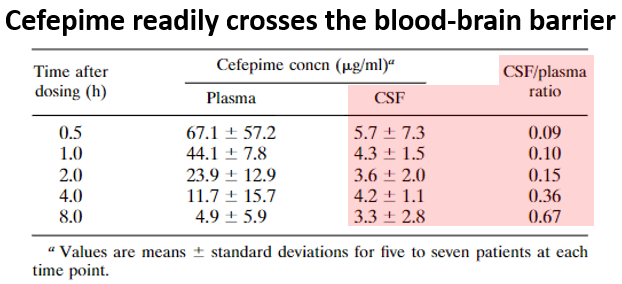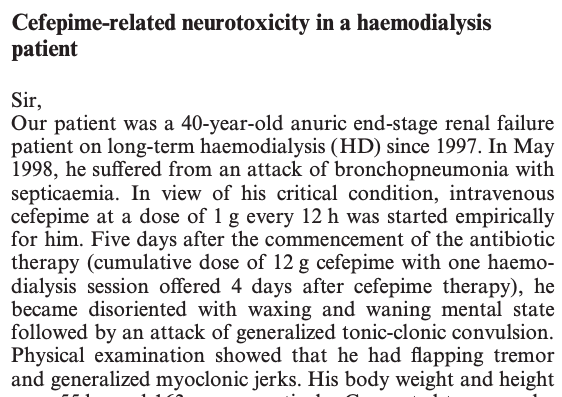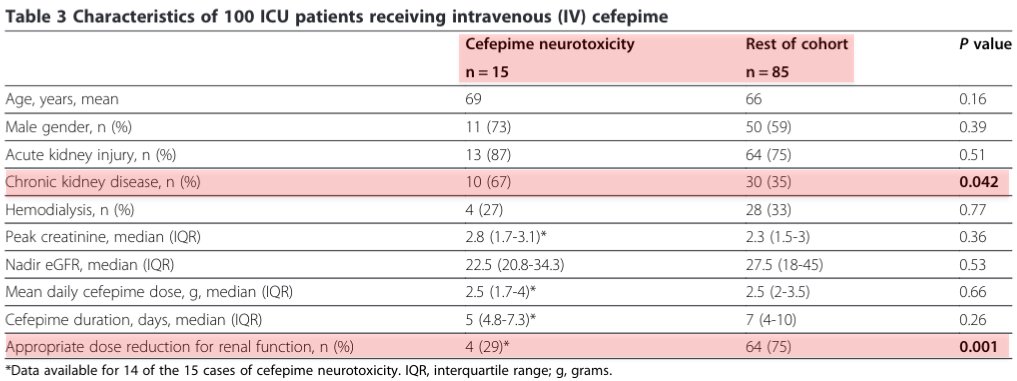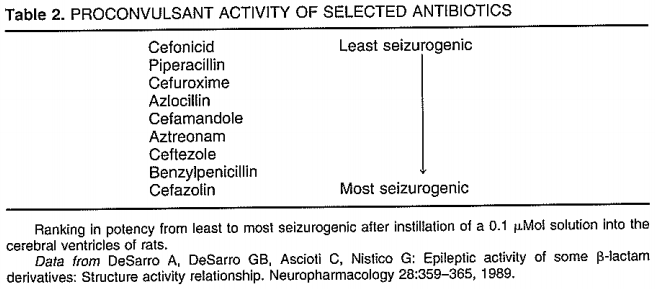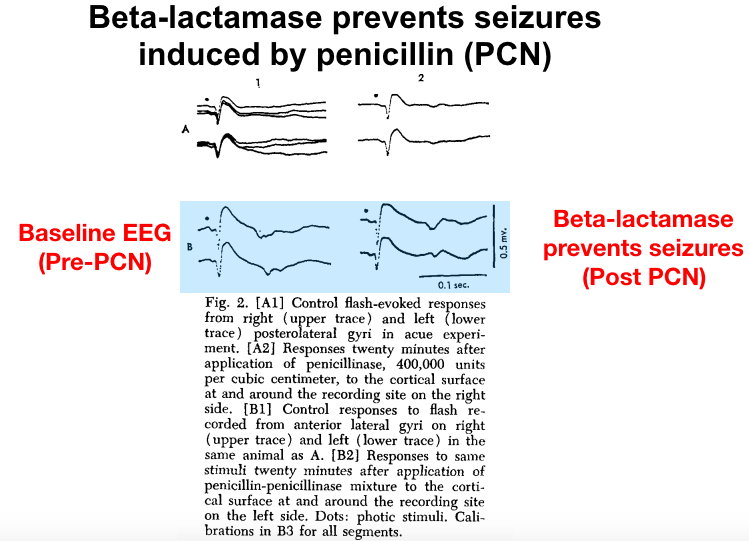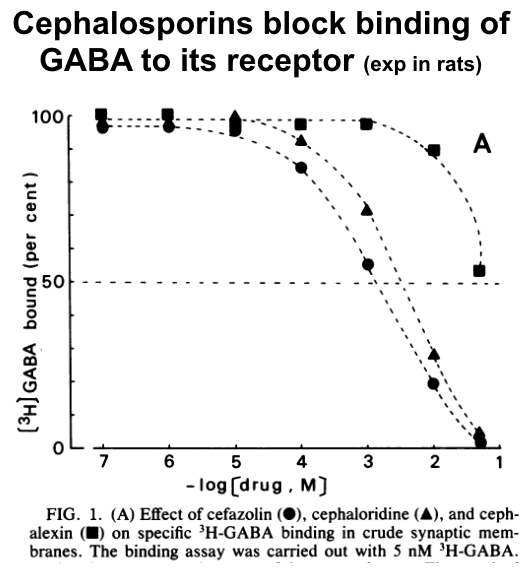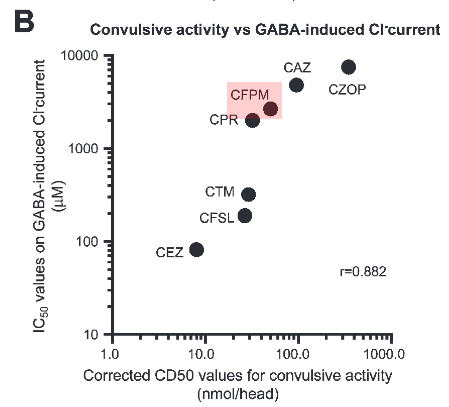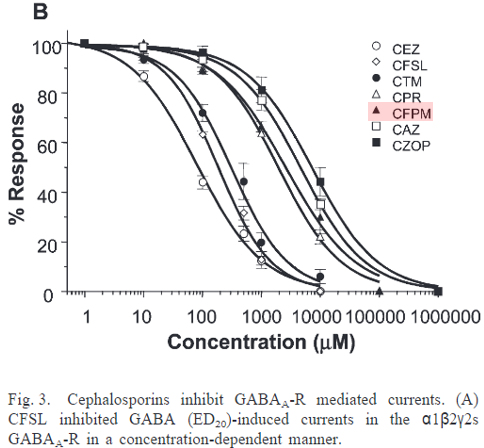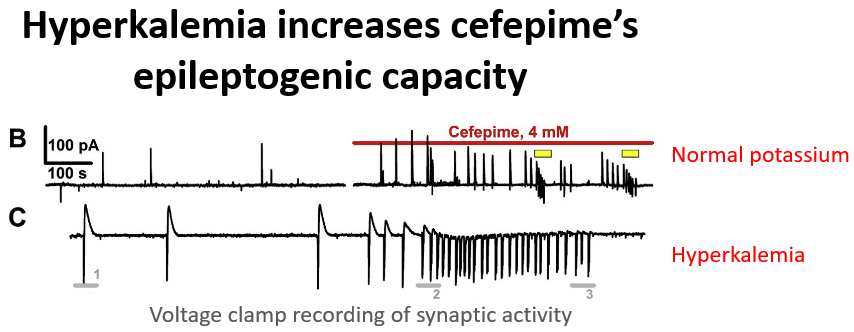2/
Let's establish a few facts about cefepime:
🔺4th generation cephalosporin antibiotic
🔺Excretion = exclusively in the urine (mostly as unchanged drug)
🔺Readily crosses the blood-brain barrier (so it easily accesses the brain)
https://t.co/rjYG1BfGPR
3/
The first report of cefepime neurotoxicity was in 1999.
A patient w/ renal failure received high doses of cefepime and then developed encephalopathy, tremors, myoclonic jerks, and tonic-clonic seizures.
✅All symptoms resolved after hemodialysis.
https://t.co/u7JLVitQpp
4/
Cefepime neurotoxicity is surprisingly common, occurring in up to 15% of treated critically ill patients (w/ symptoms varying from encephalopathy to seizures).
💡The main risk factors = renal failure and lack of dose adjustment for renal function.
https://t.co/nxbnzSq8AR
5/
What about cefepime induces neurotoxicity?
One clue is that it's not the only antibiotic that causes neurotoxicity, particularly seizures.
This actually is a class effect w/ other beta-lactam antibiotics (including penicillins and carbapenems).
https://t.co/Lf4BhON9IY
6/
Recall that beta-lactam antibiotics all share a common structural feature: a beta-lactam ring.
https://t.co/iWXweuG4Ct
7/
A 1971 study in cats implicated beta-lactam rings as the source of neurotoxicity.
High doses of penicillin were used to induce seizures.
🔑But pre-incubation w/ the enzyme beta-lactamase (disrupts the beta-lactam ring) blocked all seizure activity.
https://t.co/M3lDiXm88N
8/
So why can beta-lactam antibiotics like cefepime cause neurotoxicity?
It turns that they block the binding of the inhibitory neurotransmitter gamma aminobutyric acid (GABA) to its receptor.
🔑Cephalosporins block GABA particularly effectively.
https://t.co/Eo0OlTduOE
9/
The GABA receptor has two subtypes (A and B), and the A subtype functions as a ligand-gated Cl⁻ ion channel.
Cefepime binds to the GABA-A receptor and blocks Cl⁻ influx, which correlates with its ability to induce seizure activity.
https://t.co/l2f9QHHEEW
10/
We've established that cefepime blocks GABA.
This induces neuro-excitation leading to seizures and other neurotoxic manifestations such as tremors and encephalopathy.
💡But why is there such a strong link with renal failure?
11/
An obvious explanation would be that, since cefepime is renally cleared, elevated serum and CNS drug levels build up.
This is supported by the observation that cefepime and other cephalosporins block GABA in a concentration-dependent manner.
https://t.co/l2f9QHHEEW
12/
But increased drug levels might not be the only reason that patients w/ renal failure are predisposed to neurotoxicity.
The milieu around neurons seems to matter as well.
13/
This experiment in rat brain slices simulated a "renal" milieu by using a hyperkalemic medium around neurons.
⚡️Exposure to higher potassium levels significantly increased the ability of cefepime to induce epileptiform discharges.
https://t.co/vb3p4xXdTm
14/
Let's ask one final question.
Why can cefepime (and other beta-lactam antibiotics) block the GABA receptor?
Exactly why hasn't been well-studied but it likely reflects sufficient structural similarity w/ GABA.
https://t.co/KN7I6ACXvb
15/
🧠Cefepime induces neurotoxicity by blocking the GABA receptor, similar to other beta-lactam antibiotics
🧠This results from structural similarities between GABA and the beta-lactam ring
🧠Renal failure = main risk factor b/c of ⬆️ drug levels +/- hyperkalemia
